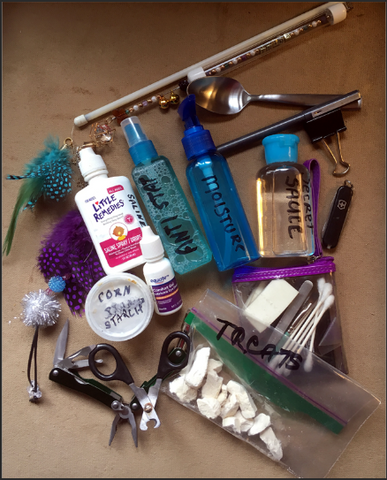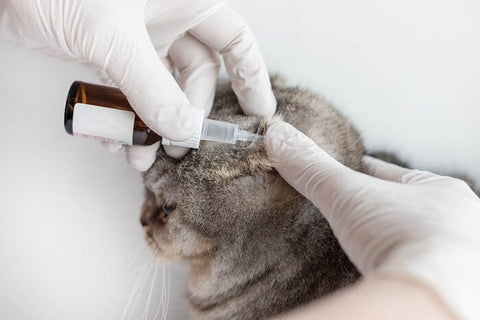Understanding Allergies and Sensitive Skin in Cats
Allergies in cats can manifest as skin irritations, itching, excessive grooming, and even hair loss. Common allergens include pollen, certain foods, fleas, and even household cleaning products. Cats with allergies are prone to developing sensitive skin conditions, making proper grooming practices essential.
1. Choose the Right Grooming Products

Opt for hypoallergenic grooming products specifically designed for cats with sensitive skin. These products are free from harsh chemicals and fragrances that can exacerbate allergies. Use mild, natural shampoos and conditioners that won't strip the skin of its natural oils.
2. Regular Brushing
Regular brushing is essential for cats with allergies. Brushing helps remove loose fur and prevents matting, which can irritate sensitive skin. Choose a soft-bristle brush to avoid further skin irritation and distribute natural oils.
3. Bathing Techniques
While some cats may require regular baths due to severe allergies, others may only need occasional baths. Use lukewarm water and a mild, hypoallergenic cat shampoo. Gently massage the shampoo into the coat and rinse thoroughly. Pat dry with a soft towel and ensure your cat stays warm until completely dry.
4. Flea Prevention

Fleas are a common allergen for cats. Use veterinarian-recommended flea prevention methods to keep these pests at bay. Regularly check your cat's fur and skin for signs of fleas or flea dirt.
5. Proper Diet
Allergies can sometimes be triggered by food. Consult your veterinarian to determine if your cat's diet is contributing to its allergies. A hypoallergenic or limited-ingredient diet may be recommended to alleviate skin issues.
6. Regular Vet Check-ups
Regular veterinary check-ups are crucial for cats with allergies and sensitive skin. Your vet can help identify allergens and recommend appropriate treatments. They can also provide guidance on grooming routines tailored to your cat's needs.
7. Be Gentle and Patient
Cats with sensitive skin may experience discomfort during grooming. Be patient and gentle while brushing or bathing. If your cat becomes stressed, take a break and resume later. Gradually acclimate your cat to grooming routines if it's not used to them.
8. Monitor Skin Conditions

Keep a close eye on your cat's skin condition. Look for signs of redness, irritation, rashes, or excessive itching. If you notice any changes, consult your veterinarian promptly.
Conclusion
Grooming a cat with allergies and sensitive skin requires a gentle touch, patience, and a proactive approach. By following these grooming tips, you can provide your feline friend with relief from discomfort and maintain their overall health and well-being. Remember, each cat is unique, so it's essential to tailor your grooming routine to suit your cat's specific needs. With proper care, you can ensure that your cat's sensitive skin remains healthy and allergy-free.
